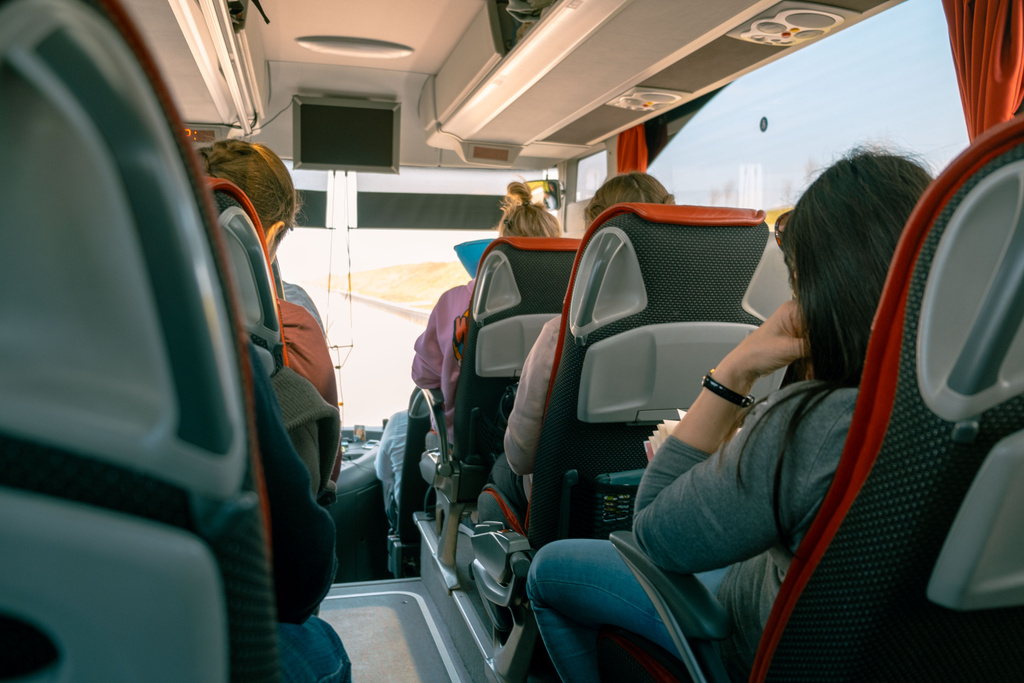Travelling sustainably is a game changer. It plays an important role in achieving the UK’s goal to reach net zero emissions by 2050. We have a collective responsibility to protect our planet and using our feet and public transport is a great place to start. Whether you’re commuting to your lectures, running errands or exploring the city, there are plenty of ways to reduce your carbon footprint. If you’re looking for ways to travel sustainably as a student to make a positive environmental impact, then this guide is for you. From walking and cycling to using public transport, discover all of the options you can choose from to make earth-conscious decisions.
What are the benefits of sustainable travel?
The future of our planet is in our hands and it is our responsibility to preserve it for future generations. By switching to sustainable modes of transport, we can avoid CO2 emissions and help the UK reach its goal to reach net zero emissions by 2050. As well as this, you can also improve your personal carbon footprint, which can be calculated at Carbon Footprint.

On top of these amazing environmental benefits, it’s also great for your physical health. By using these sustainable methods of transport, you’re adding to your steps and time spent outdoors. Not only will this improve your physical health, but the time spent outdoors will give you a serotonin boost too!
Why Sustainable Travel Matters
Sustainable travel is more than just a buzzword; it’s a mindset and a way of exploring the world responsibly. As students, we have a unique opportunity to shape the future of travel by making conscious choices that minimize our carbon footprint and support local communities.
The Environmental Impact of Travel
The tourism industry is a significant contributor to greenhouse gas emissions, with transportation, accommodation, and activities all playing a role. Consider these eye-opening statistics:
| Sector | Contribution to Global Emissions |
|---|---|
| Aviation | 2.5% |
| Tourism (overall) | 8% |
As these numbers demonstrate, our travel choices have a direct impact on the environment. By embracing sustainable practices, we can help mitigate the negative effects of tourism on our planet.
The Benefits of Sustainable Travel
Sustainable travel offers numerous benefits for both the environment and the traveler. When we choose eco-friendly options, we:

- Reduce our carbon footprint
- Support local economies
- Preserve natural and cultural heritage
- Gain a deeper understanding and appreciation for the places we visit
As students, engaging in sustainable travel allows us to broaden our horizons while making a positive difference in the world.
Planning Your Sustainable Trip
The successful sustainable travel lies in careful planning. By taking the time to research and make informed decisions, we can ensure that our trips align with our eco-friendly values.
Choosing a Destination
When selecting a destination for your sustainable adventure, consider the following factors:
- Environmental policies: Research the environmental policies and initiatives of potential destinations. Look for places that prioritize conservation, renewable energy, and waste reduction.
- Accessibility: Opt for destinations that are easily accessible by low-carbon transportation methods, such as trains or buses.
- Local culture and economy: Choose locations where your visit can have a positive impact on the local community. Consider destinations that promote responsible tourism and support local businesses.
Transportation Options
Transportation is often the largest contributor to a traveler’s carbon footprint. As students, we can make a significant difference by opting for eco-friendly transportation methods whenever possible.
Train Travel
Trains are one of the most sustainable ways to travel, offering a low-carbon alternative to flying or driving. When planning your trip, consider the following:

- Look for high-speed rail connections between your origin and destination
- Book early to secure the best fares
- Take advantage of student discounts offered by many rail companies
Bus Travel
Traveling by bus is another eco-friendly option, particularly for shorter distances. Benefits of bus travel include:

- Lower carbon emissions compared to flying or driving alone
- Affordable fares, especially with student discounts
- The opportunity to interact with locals and fellow travelers
Carpooling and Ride-Sharing
If you must travel by car, consider carpooling or using ride-sharing services to reduce your environmental impact. Benefits include:
- Splitting carbon emissions among multiple passengers
- Reducing traffic congestion
- Saving money on fuel costs
Accommodation Choices
Our choice of accommodation can also have a significant impact on the sustainability of our travels. When booking lodging, look for options that prioritize environmental responsibility, such as:
- Eco-lodges and green hotels: These establishments often employ renewable energy, practice waste reduction, and support local conservation efforts.
- Homestays and local guesthouses: Staying with local families or in small-scale accommodations supports the local economy and offers a more authentic travel experience.
- Camping and hostels: For the adventurous student, camping or staying in eco-friendly hostels can be a low-impact and budget-friendly option.
Engaging in Sustainable Activities
Once you’ve arrived at your destination, there are countless ways to engage in sustainable activities that allow you to explore while minimizing your environmental impact.
Outdoor Adventures
Immersing yourself in nature is one of the most rewarding aspects of travel. Consider these eco-friendly outdoor activities:

- Hiking and trekking: Explore local trails on foot to appreciate the natural beauty of your destination while leaving a minimal carbon footprint.
- Cycling: Rent a bicycle to discover your surroundings at a slower pace, reducing emissions and supporting local bike rental businesses.
- Kayaking and stand-up paddleboarding: Choose non-motorized water activities to explore coastal areas or inland waterways sustainably.
Cultural Experiences
Engaging with local culture is an essential part of sustainable travel. By supporting local communities and preserving cultural heritage, we can ensure that our visits have a positive impact.
- Visit local markets: Shop for souvenirs and sample local cuisine at markets that support small-scale artisans and farmers.
- Attend cultural events: Participate in local festivals, workshops, or classes to gain a deeper understanding of your destination’s traditions and customs.
- Volunteer with local organizations: Look for opportunities to volunteer with local conservation projects, schools, or community groups to give back while learning about your destination.
Minimizing Your Impact
As sustainable travelers, it’s crucial that we take steps to minimize our environmental impact throughout our journey.
Reducing Waste
One of the easiest ways to practice sustainability while traveling is to reduce our waste. Simple steps include:
- Bringing a reusable water bottle and coffee cup: Avoid single-use plastics by carrying your own refillable containers.
- Using reusable bags: Bring a compact, reusable bag for shopping and carrying essentials to reduce plastic bag waste.
- Choosing products with minimal packaging: When purchasing souvenirs or toiletries, opt for items with little to no packaging to minimize waste.
Supporting Local Economies
Supporting local businesses is a key component of sustainable travel. By directing our spending towards locally-owned establishments, we can ensure that our money benefits the community we are visiting.
- Eat at locally-owned restaurants: Seek out restaurants that source ingredients from local farmers and feature traditional dishes.
- Shop at local markets and artisan shops: Purchase souvenirs and gifts directly from local craftspeople to support their livelihoods.
- Choose local tour operators: Book tours and activities with companies that are owned and operated by locals, ensuring that your money stays within the community.
Respecting Wildlife and Natural Habitats
As students passionate about the environment, it’s essential that we respect wildlife and natural habitats during our travels. Remember to:
- Observe animals from a distance: Avoid disturbing wildlife by maintaining a safe distance and never attempting to feed or touch animals.
- Stick to designated trails: When hiking or exploring natural areas, stay on marked trails to minimize erosion and protect sensitive ecosystems.
- Follow Leave No Trace principles: Practice Leave No Trace ethics by properly disposing of waste, respecting wildlife, and minimizing campfire impacts.
Encouraging Sustainable Travel Among Peers
As students, we have the power to influence our peers and encourage them to embrace sustainable travel practices. Here are some ways to spread the word:

- Share your experiences: Use social media, blogs, or campus publications to share your sustainable travel stories and inspire others to follow in your footsteps.
- Organize eco-friendly trips: Plan group trips with friends or classmates that prioritize sustainable transportation, accommodations, and activities.
- Advocate for change: Work with your university or student organizations to promote sustainable travel initiatives, such as carbon offset programs or eco-friendly travel grants.
The Future of Sustainable Travel
As the world becomes increasingly aware of the need for sustainability, the travel industry is evolving to meet the demand for eco-friendly options. Here are some exciting developments to look out for:
Electric and Hydrogen-Powered Transportation
The transportation sector is undergoing a significant shift towards cleaner energy sources. In the coming years, we can expect to see more electric and hydrogen-powered planes, trains, and automobiles, reducing the carbon footprint of travel.
Eco-Friendly Accommodations
Hotels and resorts are increasingly prioritizing sustainability, with many adopting green practices such as renewable energy use, water conservation, and waste reduction. As students, we can support these efforts by choosing accommodations that align with our eco-friendly values.
Virtual and Augmented Reality Experiences
While virtual travel cannot replace the real thing, emerging technologies like virtual and augmented reality offer new ways to explore the world sustainably. In the future, we may be able to visit far-flung destinations without leaving a carbon footprint.
Conclusion
Switch to walking for shorter journeys or utilise the public transport in your area, make small changes to your commute today. Remember it’s a combined effort of our community, so be sure to play your part!
Looking for student housing in Leicester? Novel student accommodation in Leicester is just a short walk away from your uni and within close proximity to the city centre. Explore today and secure your place!

